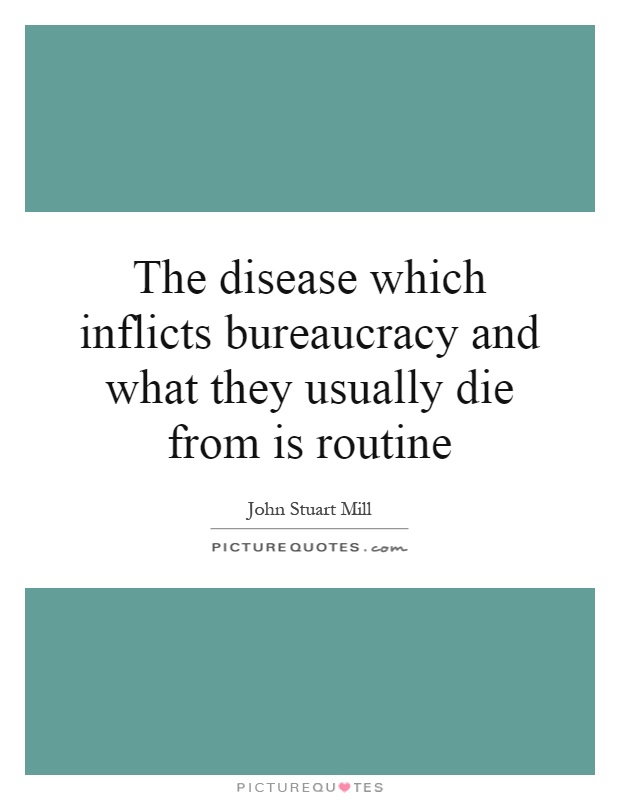The disease which inflicts bureaucracy and what they usually die from is routine

The disease which inflicts bureaucracy and what they usually die from is routine
John Stuart Mill, a prominent philosopher and political economist of the 19th century, was a staunch critic of bureaucracy and its detrimental effects on society. In his writings, Mill often highlighted the disease that inflicts bureaucracy and how it ultimately leads to its downfall - routine.Bureaucracy, as defined by Max Weber, is a system of government or management in which decisions are made by state officials rather than by elected representatives. While bureaucracy can be necessary for the efficient functioning of a government or organization, Mill believed that it often stifles creativity, innovation, and individual freedom. The disease that inflicts bureaucracy, according to Mill, is the tendency to prioritize rules and procedures over the needs and desires of the people it is meant to serve.
Routine, as Mill saw it, is the inevitable result of bureaucracy. When decisions are made based on rigid rules and regulations rather than on the unique circumstances of each situation, creativity and flexibility are stifled. This leads to a lack of innovation and progress, as well as a disconnect between the bureaucracy and the people it is meant to serve. In the end, routine becomes the death knell of bureaucracy, as it becomes increasingly irrelevant and ineffective in meeting the needs of society.
Mill's critique of bureaucracy and routine is particularly relevant in today's world, where government agencies and large organizations often struggle to adapt to rapidly changing circumstances. The COVID-19 pandemic, for example, has exposed the limitations of bureaucratic systems in responding to crises and meeting the needs of the people. In order to survive and thrive in the modern world, organizations must be willing to break free from routine and embrace creativity, flexibility, and innovation.












 Friendship Quotes
Friendship Quotes Love Quotes
Love Quotes Life Quotes
Life Quotes Funny Quotes
Funny Quotes Motivational Quotes
Motivational Quotes Inspirational Quotes
Inspirational Quotes